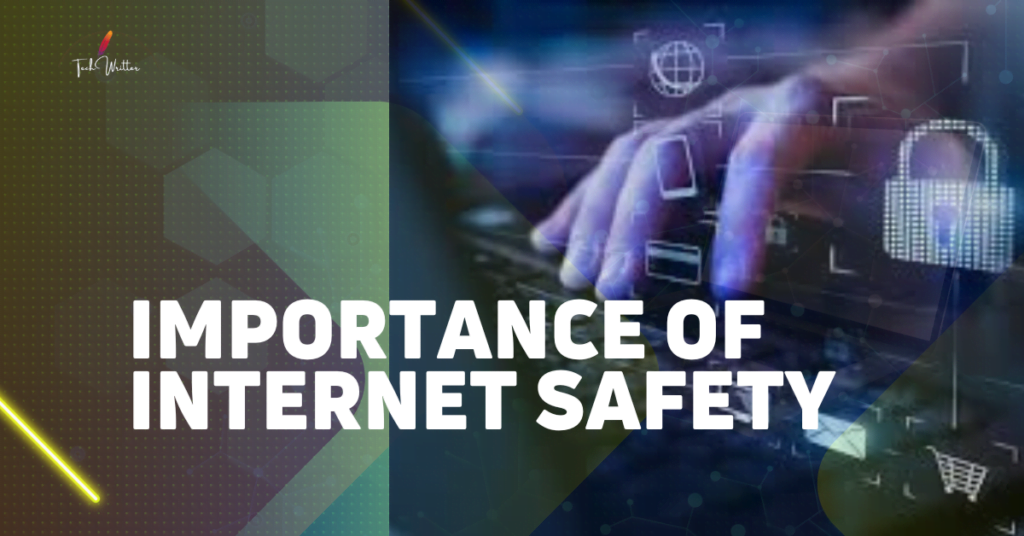The Internet is a daily dose of our lives, as we use it continuously for browsing, social sharing, chatting, and educational resources. However, it is also important to protect personal data from cyber-attacks. Data loss is not only a data loss but also a financial and reputational loss.
For example, if our digital system is not protected, then cybercriminals can gain access to passwords and personal details, which can cause serious consequences. I have developed this guide about the importance of internet safety.
Let’s start.
How Could Our Computer Be at Risk?
Our computer systems are at risk of diverse risks whilst linked to the internet. Malicious software program, normally known as malware, can infiltrate our structures through inflamed websites, emails, or downloads. These threats encompass viruses, worms, ransomware, and spyware, that can compromise our touchy facts, disrupt machine functionality, and even cause identification theft. It is critical to workout caution at the same time as browsing the net and chorus from touring suspicious web sites or downloading documents from untrusted sources.
Risk Awareness
Awareness of online risks is fundamental to internet safety. We can higher defend ourselves by using staying informed about contemporary cyber threats and information their ability consequences.
However, you can regularly educate your family members and yourself about scams, phishing and social media scams to be aware of security threats. Also, avoid unwanted emails, messages, and requests for personal information.
Online Scam Awareness
Scams on the internet are ordinary and ever-evolving. Cybercriminals hire procedures to deceive unsuspecting customers, which include deceptive emails, faux websites, and fraudulent online transactions. Developing a skeptical attitude and being cautious while sharing private statistics or undertaking financial transactions online is critical. Look out for warning signs and symptoms inclusive of poor website design, e-mail grammatical errors, or requests for uncommon or excessive personal statistics.
Security Precautions for online data
Here we have a breakdown of security precautions for online data and computer protection. we can secure the data with these methadology.
Software Protections
- Antivirus/Anti-malware: Invest in a reputable security suite designed to detect, block, and remove malicious software. Schedule regular scans and keep it updated.
- Firewall: Firewalls act as a barrier between your computer and the internet, filtering out suspicious traffic. You can enable firewalls from your operating system.
- Software Updates: Always install the latest updates for your operating system, web browser, and other installed applications.
Password Best Practices
- Strong Passwords: Create strong, unique passwords for every online account you have. Use a mix of characters (uppercase, lowercase, numbers, symbols), and avoid dictionary words or easily guessable information.
- Change Passwords Regularly: Update your passwords periodically, especially for sensitive accounts like banking or email.
- Password Manager: with the password manager we can to create and securely store complex passwords.
- Two-Factor Authentication (2FA): Enable 2FA whenever possible. This adds an extra layer of security by requiring an additional code (sent via SMS or authenticator app) on top of your password.
Browsing Safety
- Secure Websites: Stick to websites with “HTTPS” in the address bar; that indicates encryption for secure data transfer. Look for the padlock icon too.
- Be Skeptical: Exercise caution with links in emails, messages, or social media. Hover over links (without clicking) to check their true destination.
- Avoid Suspicious Downloads: Only download software, files, or attachments from trusted sources. Verify the publisher before opening anything.
- Use Ad Blockers: Ad blockers can help reduce your exposure to malicious pop-ups or ads embedded on risky websites.
Network Security
- Secure Your Wi-Fi: Use WPA2 or WPA3 encryption on your Wi-Fi router with a strong password. Change the default router name (SSID).
- Public Wi-Fi Caution: Avoid using open public Wi-Fi for sensitive activities (banking, etc.). If you must, use a VPN (Virtual Private Network) to encrypt your traffic.
Data Precautions
- Backups: Create regular backups of your important data on an external hard drive or cloud storage to protect against data loss due to hardware failure, ransomware, or theft.
- Encryption: Consider encrypting sensitive files on your computer, providing an additional layer of protection.
- Limit Sharing: Be careful about the personal information you share online. Don’t overshare on social media and be mindful of what you reveal on various websites and platforms.
Other Essentials
- Phishing Awareness: Educate yourself on how to spot phishing attempts (fraudulent emails, text messages, etc.). Watch for red flags like urgency, grammatical mistakes, or requests for personal information.
- Physical Security: Protect your computer from unauthorized physical access. Use a screen lock when you step away and consider a privacy screen filter in public.
Sum Up
Although the Internet has brought the whole world together, it has made this connection a lot unsafe. There’s always a threat of cyber threat if your computer is connected to the Internet. Understanding the importance of internet safety has become somewhat of a necessity to protect your digital world.
You can do this by understanding the factors like risk awareness and online scams. Besides this, you can also educate yourself about the security precautions for your online data. We have discussed these things in comprehensive detail in the information given above. Make sure to read it out in order to stay safe while being connected to the world.

